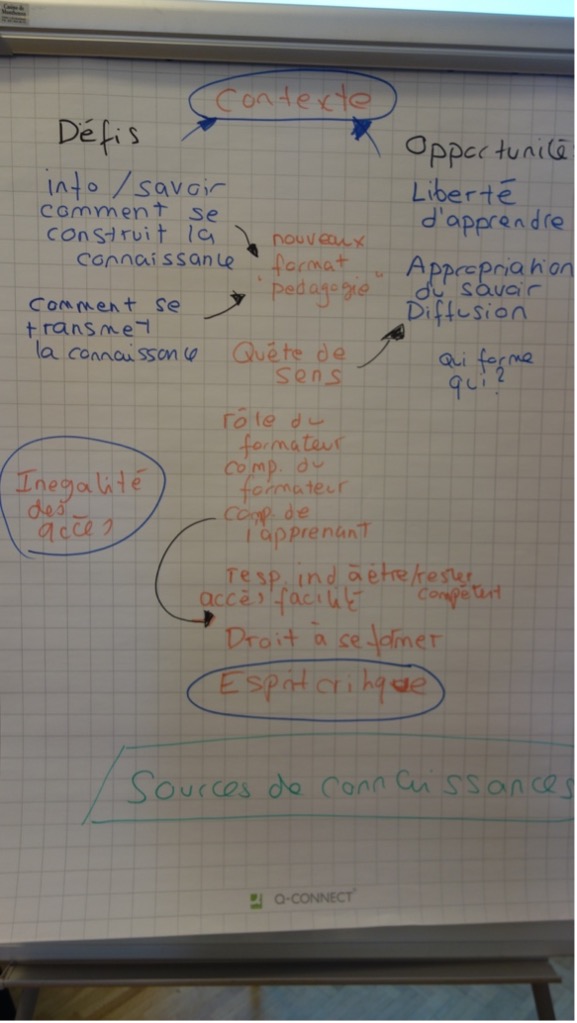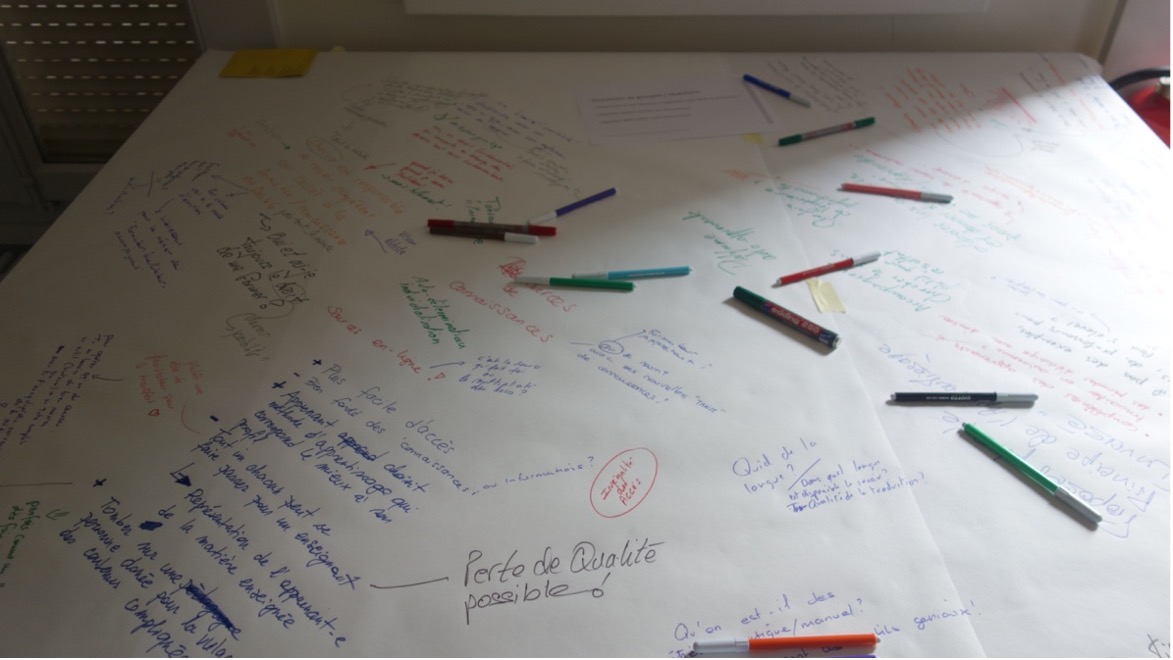The Think Tank TRANSIT has been focusing on the topic of flexibilisation for more than a year. Together with experts, we have produced the third trend report. As a conclusion to the topic, in 2023 the Think Tank TRANSIT has organised two “Flexibilisation: Perspectives for Adult Learning” salons. The events took place on 7 March 2023 at the Wirtschaft zum Transit in Zurich and on 29 June at the Casino de Montbenon in Lausanne. This summary focuses on the event that took place in French in Lausanne; a separate report in German covers the event that took place in Zurich. In the salon, participants had the opportunity to discuss and reflect on perspectives and questions on the topic of flexibilisation with a view to their own practice. They were able to reflect on developments, discuss challenges and opportunities, and look for examples of “best practice”. In addition, the event offered the opportunity to network and exchange ideas.
Coming together in the salon at the Casino de Montbenon
The Think Tank TRANSIT got its name due to its basic idea: it is to create a mental free space where shifts in boundaries, contradictions of the current situation and common approaches to solutions can be discussed. In the salon at the Casino de Montbenon, formerly “Salon bleu” and now painted white, ideas have a place alongside the new colours while not forgetting the old ones. Underneath our feet, the Swiss Film Archive contains reels of films. Here we find an inspiring ambiance that allows us to give free rein to our ideas and thoughts, and why not suggest collaborating to write possible screenplays for a film about the future of adult learning?
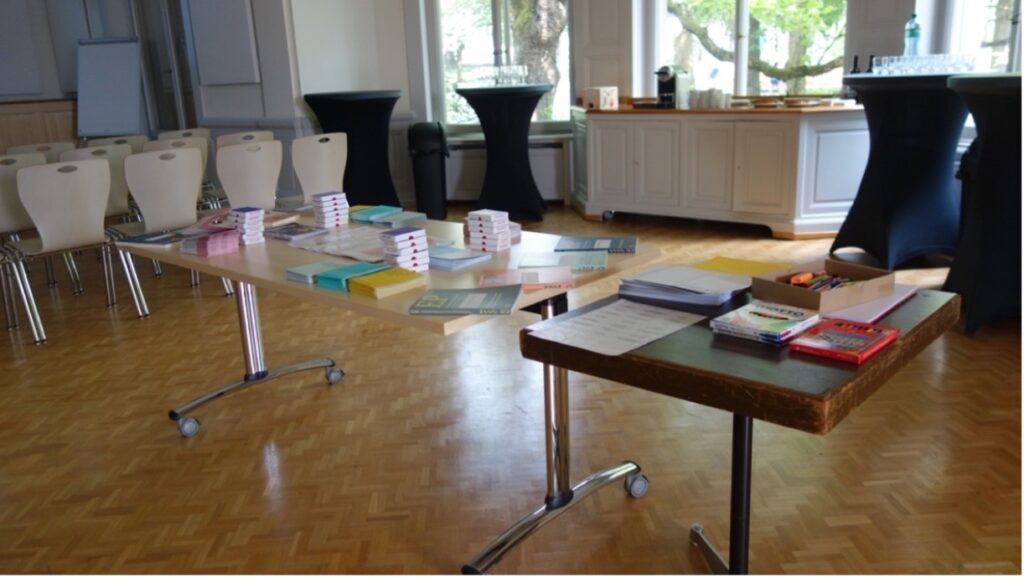
The trend report: basis for the discussions
Alexandre Lecoultre presents the central points of the third trend report written by Helen Buchs and Irena Sgier, Co-Directors of TRANSIT, and Sabine Müller. First, core societal developments are outlined in the areas of “life courses”, “world of work” and “sources of knowledge”. The shift towards post-materialistic values such as individualisation, self-determination or meaningfulness, is also covered. Finally, three overarching perspectives for adult learning are presented. These are “variety and diversity”, “meaningfulness and co-determination” and “complexity”. The presentation hence creates a common understanding for the subsequent discussions where we work with these perspectives.
The three perspectives not only stimulate reflection on opportunities and challenges, but they are also tangential to the current and future practice of adult learning. Accordingly, in group discussions we dedicate ourselves to the implementation of the three perspectives in practice within each main field, and then exchange ideas about opportunities that arise as well as expected difficulties.
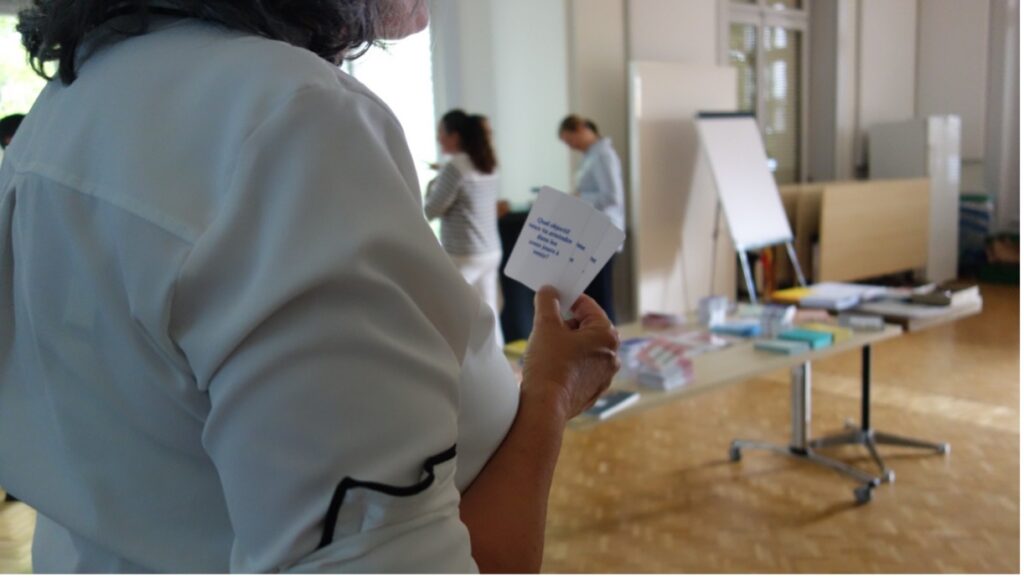
Discussion 1: World café on the field of “life courses”
This workshop is called World café due to its open format. Participants are seated in a circle and share their thoughts either based on their own experiences or in response to various statements. It is an open and dynamic format that enables the exchange and understanding of multiple perspectives.
The consideration of life courses appears to be a concern shared by all participants, who, in principle, see numerous opportunities in this. However, they also note that there are challenges associated with concrete implementation. For instance, this requires significant financial resources for administrative and pedagogical support. Many people express a desire to move in this direction and call for political awareness to obtain broader support. It has also been observed that, among the participant groups, there were people who participated voluntarily but this was not always the case, and some individuals may be partially or entirely obliged to participate in adult learning, which poses a challenge in terms of motivation.
Despite these challenges, all participants recognise the great potential in considering perspectives in the field of “life courses”, both in terms of methods and content, even before the actual training takes place. For instance, if there were less emphasis on exams or certificates and more focus on the individuals and their competencies, it would be possible to increase diversity and multiplicity, benefiting groups and life models that are often still excluded today.
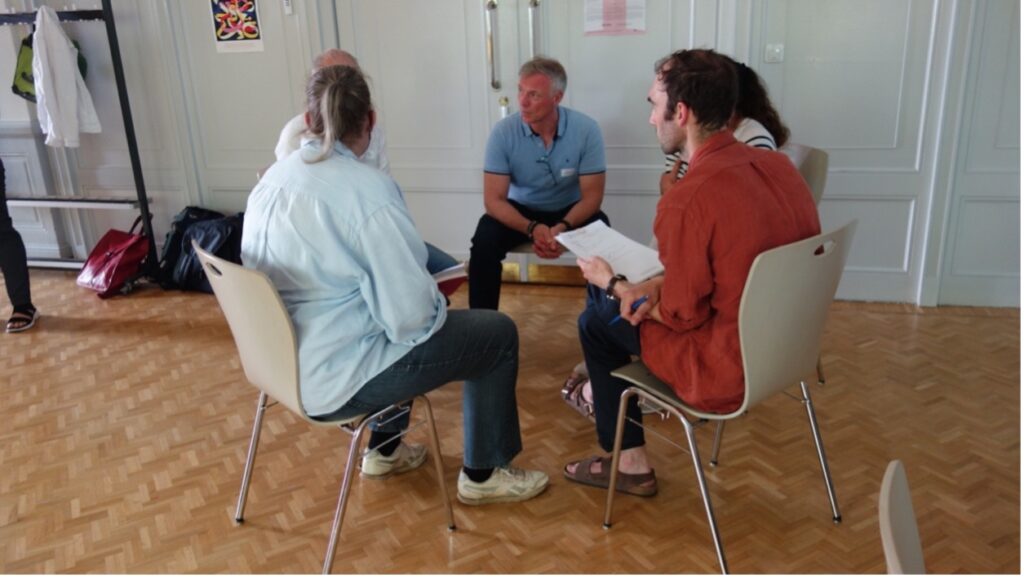
Discussion 2: Mini-fishbowl on the field of “world of work”
In this workshop called Mini-fishbowl, participants are seated in a semicircle, with two chairs placed in front: one to support challenges and the other to support opportunities. In turns, participants are invited to engage in debates, taking a stance on different viewpoints, while others actively listen or join the conversation. This format allows for a balance between active listening and argumentation.
On the chair supporting “opportunities”, the three groups highlighted several points, including questioning established beliefs and practices; finding the right resource for the right question; and mixing competencies thanks to the porosity between private and professional life.
On the chair supporting “challenges”, the three groups highlighted several points, including the risk of calling everything into question without a fundamental foundation; a possible loss of competencies if there is no framework; and the fact that certain methods can become standards, such as agility, which is not necessarily suitable for everyone and requires specific competences. The three groups also noted that certain aspects are ambiguous and can be either an opportunity or a challenge, such as creating your own job.
In the end, the participants found the three perspectives inspiring for the field of “world of work” and noted a number of desirable developments, such as empowering learners and awakening their interests. However, they believe that implementation is complicated, costly and often incompatible with objectives which are sometimes too narrow.
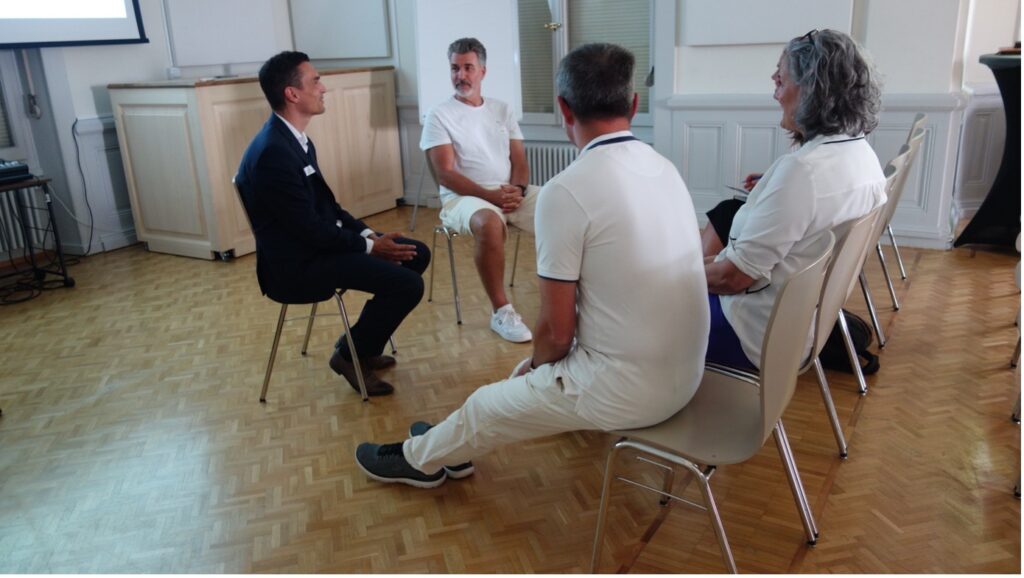
Discussion 3: Silent discussion on the field of “sources of knowledge”
Without words, discussions can be exciting! This creative workshop called Silent Discussion suggests experimenting with a unique approach where participants write, draw, trace and sketch their ideas, as well as the ideas of others, on a large tablecloth – without uttering a single word. As participants take turns, the contributions gradually turn into something like a fresco.
The participants note, for instance, that the context is always crucial when determining whether a particular aspect is seen as an opportunity or a challenge. Taking, for example, the possibility of new pedagogical formats, the freedom to learn by deploying diffuse knowledge can be seen as an opportunity, while a challenge can be seen in knowing how to effectively construct and transmit knowledge in such a context.
According to the participants, the current situation, for example, offers the chance for taking a more nuanced perspective and leaves room for individual interpretation and learning patterns. It challenges us to recognise connections, which seems particularly important in a world marked by flexibilisation. However, this situation is also very demanding: if teachers cannot manage to deal with it, a certain difficulty can lead to the exclusion of learners. Some participants notice that the challenges raised by the perspectives in the field of “sources of knowledge” affect both trainers and participants in adult learning.
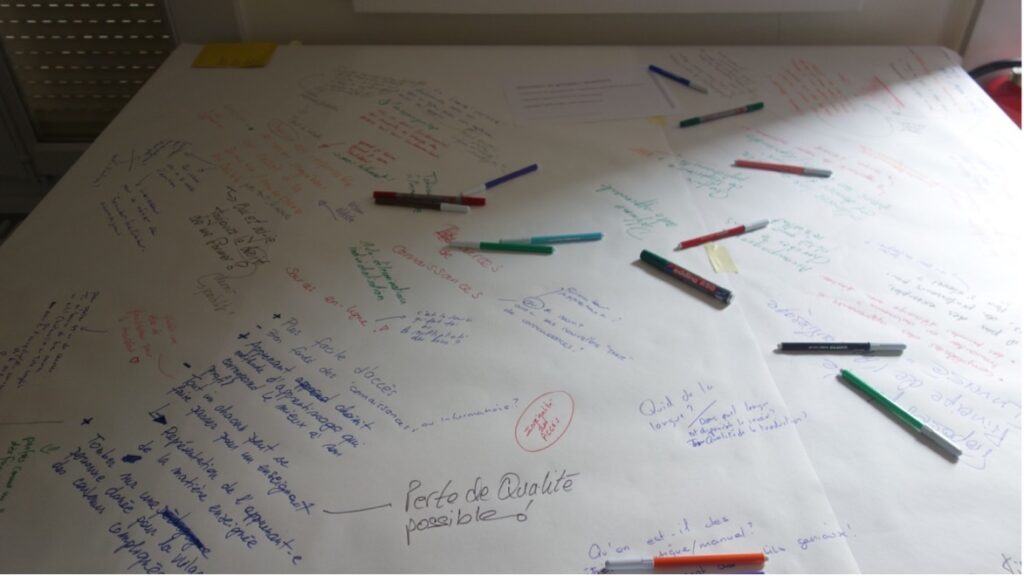
Networking during an aperitif and envelope of the future for taking home
The salon is not only for “work” such as presentations and workshops – informal exchange and networking are also important. A wonderful aperitif with local products provides the opportunity to continue discussions or start new ones on the future of adult learning and exchange contact details.
During the aperitif, each participant is invited to engage in a bit of “mail art” by writing one thing they want to remember from the event on the outside of an envelope from SVEB. The envelope is then placed on the coat rack. When leaving, each participant, in addition to their personal belongings, also takes a random envelope, allowing them to take home this envelope of the future. Giving and receiving, that’s also what TRANSIT is about.
The TRANSIT team warmly thanks all the participants for this inspiring afternoon and looks forward to the next round of shared activities around the main theme of “future skills”.
